Search Results
Search
Filter results
Advanced Filters
Your search returned 288 Solutions
-
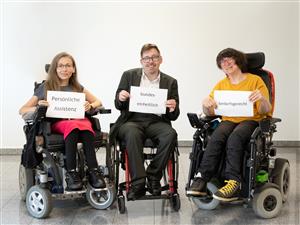
Facilitating personal assistance service provision to persons with disabilities
WAG Assistenzgenossenschaft (WAG), an Austrian non-profit cooperative founded by people with disabilities, has been operating a personal assistance service model since 2002. The model allows high flexibility for the beneficiaries, and WAG acts as a legal employer for 685 assistants as of 2022.
WAG Assistenzgenossenschaft, Cooperative personal assistance model in Austria, Austria -
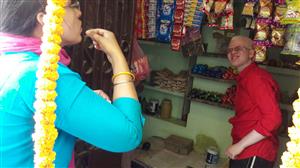
Vocational training and seed capital to support entrepreneurs with deafblindness
Sense International India provides vocational training and seed capital to adults with deaf/blindness, enabling them to launch a micro-enterprise. The NGO also trains vocational instructors. By 2020, 600 people have benefited; and since 2014, 130 people have received seed capital.
Sense International India, Income Generation Activities for Persons with Deafblindness, India -
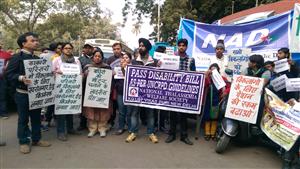
Strategic engagement with government to push for national disability legislation
Mphasis funded the NCPEDP with the purpose of advocating for a national disability policy. The programme carried out an intensive, multifaceted drive to bring together people with disabilities and government representatives. The effort resulted in the passage of the Rights of Persons with Disabilities Act in 2016.
Mphasis, Ltd., India -
The first mobile bathroom for people with complex physical disabilities
Mobiloo – a Northern Irish social enterprise active throughout Ireland and the United Kingdom – has created the first mobile bathroom for people with complex physical disabilities at outdoor events. In addition to a clean toilet, Mobiloo bathrooms provide changing tables, hoists, and adequate space for large wheelchairs and/or a personal assistant.
AccessoLoo, Disability Pride Belfast & Vehicles for Change, United Kingdom -
The professionalisation of empowerment
Peer counsellors have their own experience of disability and advise similarly affected people to enable them to take control of their own lives at home, in the community and at work. For the first time in the world, the province of Upper Austria has established peer counselling as a social profession.
Office of the Upper Austrian Provincial Government, Department of Social Affairs, The professionalisation of empowerment, Austria -
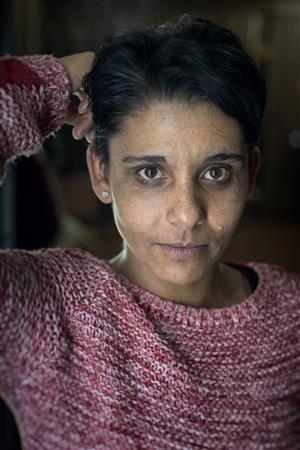
A Biographical Graphic Novel Promoting Deinstitutionalization
The story of Eli is inspiring greater independence for people with intellectual disabilities
Published in 2017, Becoming Eli is the work of Dan Ungureanu and the first graphic novel to address institutional abuse suffered by children and adults, the majority with disabilities. Based on a true story of a young girl left in state care the book wants to show that with the right support deinstitutionalization is possible.
Ceva de Spus Association, Gravis Novel Becoming Eli, Romania -
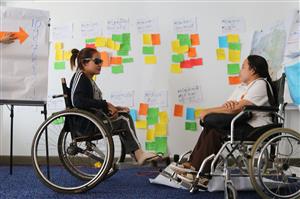
Leadership programme for women with disabilities
The selected participants attend workshops where they learn to self-advocate and empower others, after which they implement their own small projects. To date, 24 women have completed the programme, with 12 having since received formal leadership positions or promotions. A further 470 women have been reached via the small projects.
Light for the World Austria, Women Leadership Programme, Cambodia -
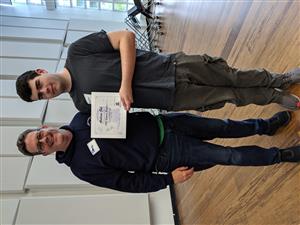
Department testing innovative approaches towards more inclusive careers for students
Since 2014, the Pathways to Careers (PTC) model has been testing different approaches to improve the qualifications and professional advancement of students with disabilities. Approaches such as Universal Design for Learning (UDL) or student learning contracts with companies have already proven successful.
Department of Labor of the US, Pathways to Careers Programme (PTC), United States of America -
Promoting micro-enterprises and entrepreneurship
ARUNIM’s key objective is to create a Marketing Federation and facilitate entrepreneurs with disabilities to become "Contributors and Job Creators". ARUNIM works with 192 NGOs as well as individual entrepreneurs as members across the country. It reaches out to more than 3,000 persons with disabilities.
Association for Rehabilitation under National Trust Initiative of Marketing, Promoting micro-enterprises and entrepreneurship, India -
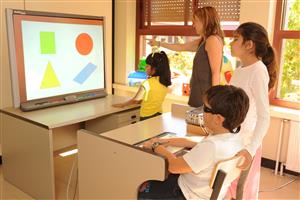
Teaching blind students in regular school classes
The mission of the project is to provide visually impaired students with assistive technology and specific support teams so that they can participate in regular classes. Regardless of age or educational stage, these teams support students with special needs from early intervention to the university level and adulthood.
ONCE Foundation, Spain